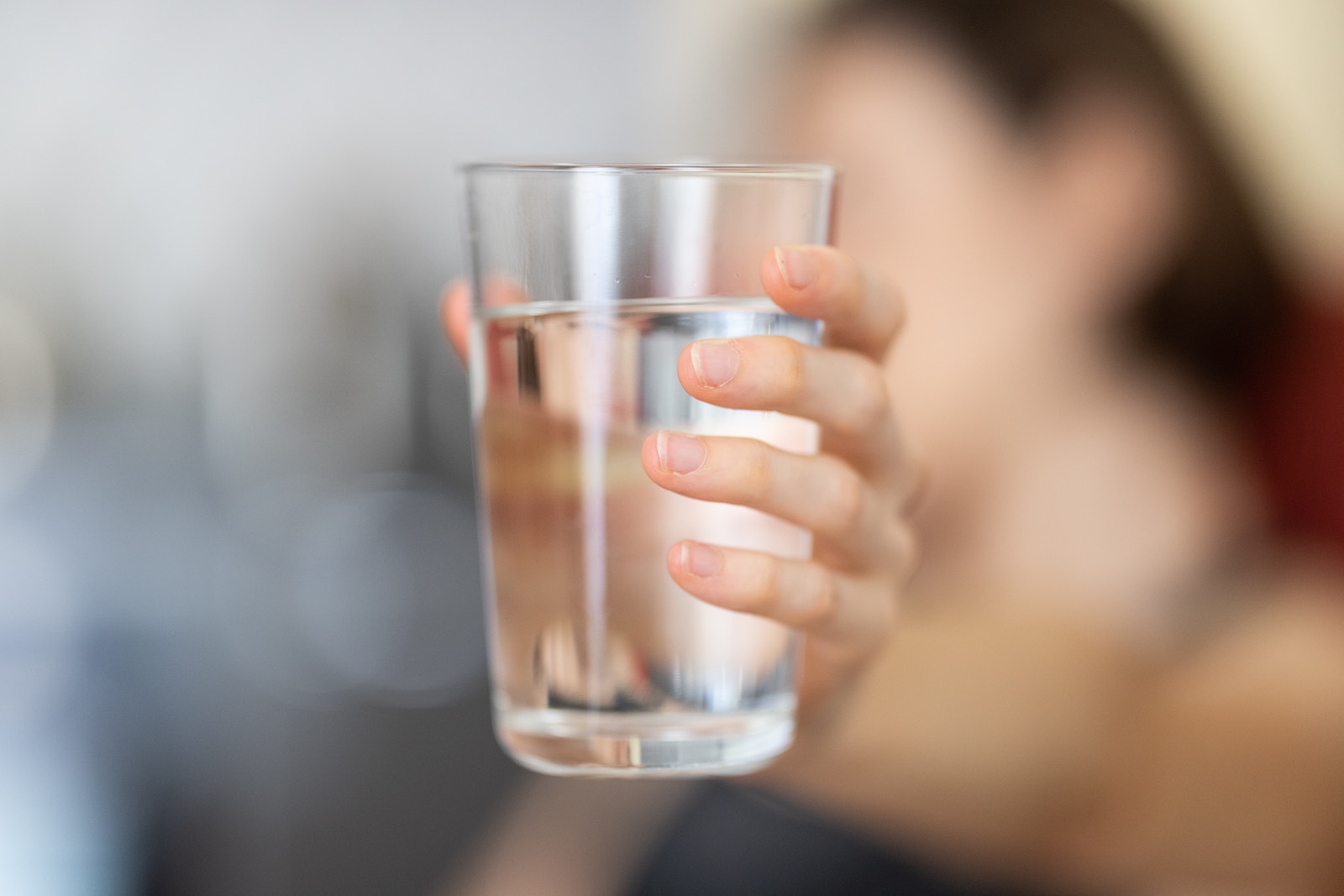
Uncover the Vital Role of Water in Nutritional Wellness
Water is the cornerstone of human health, playing a crucial role in virtually every bodily function. It’s easy to overlook the importance of hydration in the midst of complex nutrition and diet trends, but one cannot underestimate the integral part that water plays in maintaining health. Bodies use water to regulate temperature, transport nutrients, and remove waste, making the act of staying hydrated a key to the body’s overall well-being.
Incorporating enough water into one’s diet is not just about quenching thirst—it’s about supporting every cell, tissue, and organ in the body. Health guidelines suggest that a well-hydrated person can more effectively combat fatigue, maintain mental clarity, and even stave off ailments. It’s essential for digestive health, aids in weight management, and supports healthy skin. By understanding the signals the body gives when it needs water, people can better respond to their hydration needs.
Executives, athletes, students, and everyone in between find that their performance can be significantly influenced by their hydration status. Yet, many struggle to consume the recommended amounts of water each day. It’s not just about drinking water; there are a variety of foods and beverages that contribute to hydration, each with its role to play in a balanced, health-promoting diet. By exploring the simple yet impactful act of staying hydrated, people can take a proactive step toward maintaining their health and enhancing their quality of life.
Understanding Hydration and Health
Hydration is pivotal to maintaining health, as water plays a critical role in the functioning of every cell and organ within the body. This section will explore the intricate relationship between water and health, from our body’s basic needs to the impact of hydration at various stages of life.
The Role of Water in the Body
Water is vital for the human body, comprising about 55% to 75% of body weight. It is essential for cellular homeostasis – the balance of fluids within and outside of cells – which is necessary for all bodily functions. Water serves as a solvent for biochemical reactions, a transporter of nutrients and waste, and helps regulate body temperature through sweat.
How Hydration Affects Physical Well-Being
The state of being adequately hydrated is crucial for sustaining energy levels and focus, which can influence mood and overall physical well-being. During physical activity, the body loses fluids through sweat, and this loss must be compensated to maintain physical performance and prevent the body from overheating.
Hydration Through Different Life Stages
Fluid needs can vary significantly with age. Children may not always recognize the signs of thirst, and as one ages, the sense of thirst may become less acute. This can leave the elderly particularly vulnerable to dehydration, so it is critical to adjust fluid intake with respect to one’s age and hydration needs.
Recognizing Dehydration Symptoms
Dehydration occurs when the body loses more water than it takes in, leading to an imbalance of salts and sugars. Signs of dehydration include a dry mouth, dark-colored urine, headaches, constipation, and in severe cases, diarrhea or fever. It is important to recognize these symptoms early to prevent further health complications.
Dietary Sources of Hydration
Proper hydration is essential for overall health, and while drinking water is crucial, various foods and beverages also contribute significantly to daily water intake. They not only provide fluid but can offer additional nutrients that are beneficial for the body.
Water-Rich Foods and Their Benefits
Fruits and vegetables are powerhouse sources of fluids, fiber, and essential nutrients contributing to hydration. For instance, cucumbers and watermelons boast of high water content, often over 90%, making them excellent choices for increasing total water intake. Including other water-rich foods such as oranges, strawberries, and lettuce in one’s diet not only augments fluid intake but also provides vitamins and minerals vital for health.
- Examples of Water-Rich Fruits and Vegetables:
- Cucumbers: 96% water
- Watermelons: 92% water
- Strawberries: 91% water
- Lettuce: 96% water
In addition to their water content, these foods are rich in fiber, which helps in maintaining hydration levels by retaining water in the body.
Hydration Beyond Water: Beverages in Your Diet
Water is the best source for staying hydrated, but other beverages like tea, coffee, and milk contribute to daily fluid needs. Tea and coffee, despite their caffeine content, can contribute to total water intake, though they should be consumed in moderation. Milk and milk alternatives provide not just hydration but also calcium and vitamin D.
Nonetheless, it’s critical to be mindful of beverages such as soda, sports drinks, and flavored water, which might include added sugars. These can contribute to fluid intake but may not be the healthiest options due to their high-calorie content. Plain water should be a significant part of the hydration plan, with other beverages supplementing as needed.
- Beverage Contribution to Hydration:
- Tea: Can contribute to hydration when unsweetened.
- Milk: Offers hydration plus calcium and vitamin D.
- Juice: Provides hydration and some vitamins, but watch for added sugars.
Choosing water-rich foods and a variety of beverages can help maintain proper hydration levels while also offering a range of other health benefits.
Impacts of Diet Choices on Hydration
Making informed diet choices significantly impacts one’s hydration levels, which in turn affects overall health. The balance of electrolytes in the body is influenced by water intake and the consumption of certain drinks and additives can contribute to dehydration.
Balancing Electrolytes and Water Intake
Electrolytes such as potassium, magnesium, and calcium are minerals critical for maintaining the body’s hydration status. A diet rich in these minerals can enhance hydration, as they help regulate fluid balance and support nerve and muscle function. Foods like bananas, avocados, and leafy greens contribute to potassium levels, while nuts and seeds can increase magnesium intake. Dairy products are a good source of calcium. Individuals should ensure their fluid intake matches their body’s needs, taking into account factors such as calorie intake, physical activity, and environmental conditions.
- Potassium-rich foods: Bananas, oranges, potatoes
- Magnesium-rich foods: Pumpkin seeds, almonds, spinach
- Calcium-rich foods: Milk, yogurt, fortified plant milks
Negative Effects of Certain Drinks and Additives
Consuming drinks with added sugars, caffeine, and alcohol can have a negative impact on hydration. Drinks like energy drinks, sodas, and even some types of flavored water can lead to a higher calorie intake without providing significant nutritional benefits, which can disrupt the balance of electrolytes. Caffeine and alcohol have diuretic properties, increasing the risk of dehydration. It’s recommended to moderate the intake of these beverages and to be mindful of the added sugars and calories they contain.
- Caffeinated beverages: Coffee, tea, some soft drinks
- Alcoholic beverages: Wine, beer, spirits
- High-sugar drinks: Sodas, sweetened juices, sports drinks
Incorporating a variety of minerals in one’s diet and being cautious about the intake of certain beverages can help maintain optimal hydration and contribute to overall health.
Practical Hydration Tips
Maintaining proper hydration is crucial for both health and performance. This section offers practical advice to help ensure adequate water intake in daily life, focusing on simple strategies to increase water consumption and the benefits of staying hydrated, especially during physical activity and in different environments.
How to Increase Water Consumption
One effective method to boost water intake is by keeping a water bottle on hand throughout the day. Choosing a water bottle that’s visually appealing or has motivational markings can encourage more frequent sips. Incorporating flavors can make drinking water more enjoyable; adding slices of fruits or a dash of herbs can enhance the taste without adding significant calories. Alternatively, substituting sugary beverages with fruit juice or vegetable juice can contribute to hydration while providing some nutritional benefits, but it’s crucial to be mindful of the sugar content.
- Keep a refillable water bottle accessible
- Infuse water with fruits or herbs for flavor
- Opt for low-sugar juices as alternative hydrating beverages
Staying Hydrated for Health and Performance
Staying properly hydrated is essential when it comes to exercise and high temperature situations, as water helps regulate body temperature and maintain physical performance. Even mild dehydration can impair mental performance and short-term memory, making it imperative to prioritize drinking enough water before, during, and after intense activities. Setting reminders to take hydration breaks and monitoring the color of urine for signs of hydration can also be beneficial.
- Increase water intake during and after physical activity
- Monitor urine color for hydration clues
- Use reminders for regular water breaks during active hours







